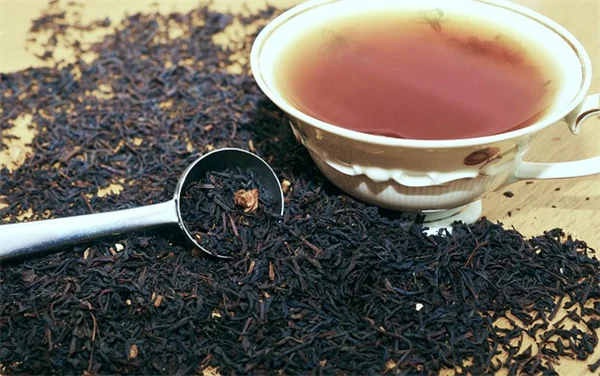Hair Training: Does It Really Work or Just Make Things Worse?
Hair training - that viral trend where people try to train their hair to need less washing - is everywhere on social media these days. But here's the truth: hair training doesn't actually work the way influencers claim. In fact, dermatologists warn it can lead to serious scalp issues and even hair loss. The reality is your scalp produces oil based on hormones and genetics, not your shower schedule. While some hair types can go longer between washes, completely avoiding shampoo for weeks can create a breeding ground for bacteria and yeast. I learned this the hard way when my 30-day challenge left my scalp itchy and my hair falling out in clumps. The good news? There are better ways to care for your hair without jumping on this questionable trend.
E.g. :Diabetes and Colon Cancer Risk: What African Americans Need to Know
Advertisement
- 1、The Truth About Hair Training: Why Skipping Washes Might Backfire
- 2、The Dirty Side Effects You Didn't See Coming
- 3、Finding Your Hair's Perfect Wash Rhythm
- 4、Choosing Products That Actually Help
- 5、The Bottom Line on Hair Training
- 6、The Psychology Behind Hair Training Trends
- 7、Alternative Approaches to Manage Oil Production
- 8、Cultural Perspectives on Hair Washing
- 9、When to Seek Professional Help
- 10、Building a Personalized Hair Care Routine
- 11、FAQs
The Truth About Hair Training: Why Skipping Washes Might Backfire
What Exactly Is This Viral Hair Training Trend?
You've probably seen those TikTok videos where influencers proudly show off their "30-day no-wash hair challenge" results. That's what they call hair training - the idea that by washing less frequently, you'll somehow teach your scalp to produce less oil. Sounds magical, right?
But here's the reality check: your scalp isn't a puppy you can house train. It's a living, breathing part of your skin that needs regular cleaning, just like your face. When I tried this trend myself last summer, let's just say my coworkers started keeping their distance by week two!
The Science Behind Your Scalp's Oil Production
Ever wonder why your hair gets greasy? It's not because you wash it too much - that's a complete myth. Your sebaceous glands produce oil based on hormones, genetics, and environment, not your shower schedule.
Here's a quick comparison of what actually happens:
| What You Think Happens | What Actually Happens |
|---|---|
| Less washing = less oil production | Oil keeps building up regardless |
| Your scalp "learns" to be less oily | Bacteria and yeast start throwing a party |
| Hair becomes healthier | Hair follicles get clogged |
The Dirty Side Effects You Didn't See Coming
 Photos provided by pixabay
Photos provided by pixabay
When Less Washing Leads to More Hair Loss
Here's something scary: that trendy hair training method could actually make your hair fall out. How? When oil, dirt, and product buildup accumulate, they can:
- Clog hair follicles (basically suffocating your hair roots)
- Cause inflammation (your scalp's version of a temper tantrum)
- Lead to excessive scratching (which pulls out healthy hairs)
Remember that 2021 study showing low wash frequency increases hair loss risk? It wasn't kidding. I learned this the hard way when my brush started collecting more hair than my cat sheds!
Your Scalp's Worst Nightmare: Yeast and Bacteria
Think of your scalp like a kitchen counter. Would you let food sit there for weeks without cleaning? Of course not! Yet that's exactly what you're doing with hair training.
Seborrheic dermatitis isn't just a fancy term - it's a real condition that makes your scalp red, itchy, and flaky. And guess what thrives in all that built-up oil? Yeast. Lots of it. Before you know it, you've got yourself a microscopic frat house on your head.
Finding Your Hair's Perfect Wash Rhythm
Why One Size Definitely Doesn't Fit All
Here's the million-dollar question: How often should YOU wash your hair? The answer might surprise you - it depends entirely on your hair type, lifestyle, and even the weather!
For example, my gym buddy washes daily because she's a spin class addict, while my cousin with curly hair can go a week between washes. The key is paying attention to your scalp's signals, not some internet trend.
 Photos provided by pixabay
Photos provided by pixabay
When Less Washing Leads to More Hair Loss
Your hair will tell you when it needs cleaning - you just need to listen. Look for these obvious clues:
- Your part looks like you rubbed french fries on it
- Your scalp itches like you've got ants in your pants
- Your updo could probably stand up by itself
Pro tip: If people start offering you dry shampoo as a "hint," take the hint!
Choosing Products That Actually Help
Matching Your Shampoo to Your Hair Type
Not all shampoos are created equal. That coconut-scented bottle might smell amazing, but is it right for YOUR hair? Here's a quick cheat sheet:
Fine/oily hair: Tea tree or mint shampoos (the tingle means it's working!)
Curly/dry hair: Creamy formulas with glycerin or shea butter
Color-treated hair: Sulfate-free options that won't strip your $200 highlights
When in doubt, ask your hairstylist. That's why they went to beauty school instead of getting their advice from TikTok!
Other Ways to Keep Your Hair Happy
Want healthier hair without joining the no-wash cult? Try these simple tricks:
- Brush daily to distribute natural oils (but gently - no yanking!)
- Use warm water, not hot (your scalp isn't a lobster)
- Give your blow dryer a break sometimes (air drying is free!)
Remember that time I used seven different styling products for "volume"? My hair had so much buildup it could've survived a hurricane. Don't be like past me.
The Bottom Line on Hair Training
 Photos provided by pixabay
Photos provided by pixabay
When Less Washing Leads to More Hair Loss
At the end of the day, hair training is like that fad diet your aunt keeps trying - it promises amazing results but usually leaves you worse off. Instead of following trends, follow what your hair actually needs.
Your future self (and anyone who has to sit near you) will thank you for keeping things clean. After all, good hair days start with a healthy scalp - not a dirty one!
When to Actually Consider Washing Less
Now, I'm not saying you need to shampoo every single day. Some hair types genuinely benefit from less frequent washing. The key difference? Doing it strategically rather than stubbornly sticking to some arbitrary "training" schedule.
For example, my friend with thick, curly hair washes every 5 days - but she uses a scalp scrub in between to keep things fresh. That's the smart way to do it!
The Psychology Behind Hair Training Trends
Why We Fall for Quick Fixes
Isn't it fascinating how we keep chasing these miracle solutions? The appeal of hair training taps into our deep desire for simple answers to complex problems. We want to believe that skipping showers could magically transform our hair, just like we hoped those detox teas would melt belly fat overnight.
The truth is, our brains love shortcuts. When someone claims you can "train" your hair like a pet, it sounds easier than actually understanding your scalp's biology. I remember buying into a similar trend years ago - the "no-poo" movement. Let's just say my hair smelled like a salad dressing gone wrong after three weeks!
The Social Media Effect on Hair Care
Scroll through any platform and you'll see perfect influencers with flawless hair claiming their secret is washing less. What they don't show? The professional stylists, expensive treatments, and perfect lighting behind those "effortless" looks.
Here's a reality check: your feed is curated, not real life. Those #HairTraining before-and-after shots often use different lighting, angles, and styling techniques. Remember when that viral "30-day no wash" influencer got caught using dry shampoo daily? Yeah, neither does her audience!
Alternative Approaches to Manage Oil Production
Diet Changes That Actually Impact Your Scalp
Want to reduce oiliness naturally? Look at your plate before changing your shower routine. Certain foods can influence sebum production more than washing frequency:
| Food to Reduce | Healthier Swap | Why It Helps |
|---|---|---|
| Fried foods | Avocados | Healthy fats regulate oil production |
| Dairy | Almond milk | Reduces hormonal triggers |
| Sugary snacks | Berries | Lowers inflammation |
When I cut back on cheese (the hardest 3 weeks of my life), my scalp became noticeably less greasy. Who knew pizza could be affecting my ponytail?
The Water Temperature Trick Nobody Talks About
Here's a pro tip your hairstylist wishes you knew: shower temperature matters more than frequency. Hot water strips your scalp, causing it to overcompensate with more oil. Try this instead:
- Start with warm water to open cuticles
- Rinse with cool water to seal moisture
- Never use steaming hot water (your scalp isn't pasta!)
My roommate thought I was crazy until she tried it - now she brags about going an extra day between washes just by adjusting the temperature dial.
Cultural Perspectives on Hair Washing
How Different Ethnicities Approach Hair Care
Ever notice how hair advice varies wildly across cultures? That's because optimal wash frequency depends largely on hair texture and density. What works for straight, fine hair might damage curly, coarse hair.
In many Black communities, weekly washing is standard to maintain moisture and prevent breakage. Meanwhile, my Scandinavian friend washes daily because her fine hair turns into an oil slick by bedtime. Neither approach is wrong - they're just tailored to different needs.
The Historical Roots of Hair Washing Myths
Believe it or not, the "washing less is better" idea dates back centuries. In Victorian times, people believed frequent bathing caused illness (they weren't entirely wrong about contaminated water). Some wealthy women washed just once a month, relying on elaborate updoes and powders to hide the grease.
Fast forward to today, and we're still clinging to outdated ideas while ignoring modern science. Makes you wonder - what other beauty myths are we blindly following just because they sound romantic?
When to Seek Professional Help
Red Flags Your Scalp Issues Need a Doctor
How do you know when it's time to ditch the DIY solutions and see a dermatologist? Watch for these warning signs:
- Persistent flaking that looks like snow on your shoulders
- Red patches that won't go away
- Painful bumps or excessive hair loss
I learned this the hard way when my "experiment" with apple cider vinegar rinses left my scalp burning for days. Turns out, some internet remedies do more harm than good!
The Real Cost of Following Trends Blindly
Think about it - how much have you spent trying to fix damage from bad hair advice? Between special shampoos, scalp treatments, and salon visits to correct mistakes, those trendy "savings" from washing less often disappear fast.
My cousin spent $300 reversing the effects of a no-wash challenge gone wrong. That's enough for a weekend getaway - or a lifetime supply of good shampoo!
Building a Personalized Hair Care Routine
Tracking What Actually Works for You
Instead of following generic rules, why not become a scientist of your own hair? Keep a simple journal for a month noting:
- Wash days
- Product combinations
- How your hair responds
You might discover patterns you never noticed. I did this last year and realized my hair loves a mid-week water-only rinse - something no trend would've suggested!
The Power of Seasonal Adjustments
Your hair needs change with the weather just like your wardrobe. Summer humidity calls for more frequent cleansing, while winter dryness might mean stretching washes with protective styles.
Last December, I stubbornly stuck to my summer routine and ended up with the driest scalp of my life. Now I adjust like I do with my skincare - because hair is skin, just in a different location!
E.g. :Not Washing Your Hair for Days Can Lead to Hair Loss, Scalp ...
FAQs
Q: What exactly is hair training supposed to do?
A: Hair training is based on the idea that if you wash your hair less frequently, you can "train" your scalp to produce less oil. Proponents claim that by gradually extending time between washes (some go up to 30 days!), your scalp will adjust and become less oily. However, dermatologists say this is completely false - your oil production is determined by hormones and genetics, not your washing habits. What actually happens is buildup of oil, dirt, and products that can clog follicles and cause irritation. I tried this method myself last summer and ended up with the itchiest scalp of my life - not exactly the "healthy hair" results I was promised!
Q: Can hair training cause hair loss?
A: Absolutely yes. When you don't wash your hair regularly, several things happen that can lead to hair loss. First, the buildup of oil and dead skin cells can clog hair follicles, essentially suffocating your hair at the root. Second, the irritation and inflammation from all that buildup can damage hair follicles. And third, the constant itching many people experience can physically pull out hairs. A 2021 study actually found a direct link between infrequent washing and increased hair loss. My hairstylist nearly had a heart attack when she saw how much hair I was losing during my ill-advised hair training experiment!
Q: How often should I really wash my hair?
A: There's no one-size-fits-all answer, but here's what experts recommend: If you have fine or oily hair, you might need to wash every day or every other day. Thicker or curly hair types can often go 3-5 days between washes. The key is to pay attention to your scalp, not follow some arbitrary internet trend. When your hair looks limp, feels greasy, or your scalp itches, it's time to wash. I've learned that my medium-textured hair does best with washing every 3 days - any longer and my coworkers start subtly leaving bottles of dry shampoo on my desk!
Q: What are some signs I'm washing my hair too infrequently?
A: Your hair and scalp will give you plenty of warning signs when you're going too long between washes. Look for: visible oil buildup (especially around your part), an itchy or flaky scalp, unpleasant odor, increased hair shedding, or product buildup that makes your hair feel stiff. If you scratch your head and your fingernails come away with gunk under them - that's nature's way of saying "shampoo time!" After my hair training phase, I realized my hairbrush was collecting more oil than my frying pan - not a good look!
Q: Are there better alternatives to hair training?
A: Instead of extreme hair training, try these healthier approaches: Use a gentle, sulfate-free shampoo matched to your hair type. Brush regularly to distribute natural oils. Try scalp treatments between washes if needed. Reduce heat styling. And most importantly - wash when your hair needs it, not according to some rigid schedule. My hairstylist taught me that the key to great hair isn't washing less, but washing smarter with the right products and techniques. Now my hair looks better than ever - and doesn't scare away my coworkers!







